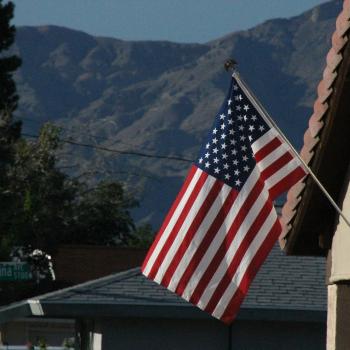Building on my previous post, I want to talk some more about the clash of expectations that leads to poverty-nagging. Today we’ll look at the “But she has a smartphone!” line of welfare reform proposals.
Back in the 1980’s, my parents bought an IBM PC. This was when getting a computer (of any kind) in your home was first becoming common. It didn’t have a hard drive, it had a four-color monitor (black, white, pink, green), and it most certainly was not connected to the internet. When you wanted to use it, you turned it on, went through a five-minute booting-up process, and you periodically saved your work to a floppy disk throughout your session. When you finished working, you went through a shutting-down process, and the machine remained entirely turned off until the next session.
“Using the computer” was a discrete event, like cooking dinner or mowing the lawn; you didn’t just pop on to look something up (that’s why you owned that bookcase full of encyclopedias, a dictionary, and a phone book).
It was also a luxury of the upper middle class. A PC cost about $2,000. Housing prices varied tremendously around the nation then as they do now (electronics, in contrast, cost about the same no matter where you live), but pulling a number out of the air based on foggy memory, let’s say you could get rent or a mortgage on a decent, affordable home of some nature for about $500 a month. So a PC represented about four month’s housing costs.
***
In those days, and those days represent the lived reality for over half the nation’s voters, you couldn’t have a cell phone. They simply were not.
You could have a pager in the 1980’s, if you were someone who needed to be within phone contact at all times. People would dial your pager number, punch in the number they wanted you to call (or a code, if you’d worked out a system to communicate via numerical messages), and you would find a phone and call the number. Doctors had them. My friend with diabetes had them for her family, so that in a medical crisis someone could call her parents ASAP. Drug dealers found them eminently useful.
Meanwhile, no one had a cell phone. If you needed to make a phone call away from home, you carried a dime and a winsome attitude. The former got you the use of a pay phone, the latter you habitually employed in talking business owners into letting you just use the office phone. If you broke down on the side of the road, it was socially acceptable to walk to the nearest home or business and ask to use their phone. If you saw someone broken down on the side of the road, it was courteous to stop and offer assistance — such as driving them to a telephone.
Local calls were free (no minutes usage), long distance was expensive. Common courtesy held that, within reason, you made your phone available to people for local calls, and that your guests would reimburse you for the cost of long-distance. Meanwhile, you did things like setting a year’s worth of Girl Scout events on the calendar at the start of the year and sticking to it, because it was difficult to communicate last minute changes. When you hosted an event of any kind, you mailed out (using the post office) written directions to the event location. The concept of merely giving the address of the event was utterly foreign — everyone with sense carried maps and knew how to use them, but the maps were not so detailed as all that.
All this is to say: In the time before cell phones, people got along fine.
***
Because the majority of voters lived happily and well in the time before cell phones, we also remember the transition to them. We remember when only real estate agents and the impossibly wealthy carried such things. We remember when it was a big deal for executives to own a digital address book and calendar, and the thing didn’t even make phone calls — you might also have a little flip phone, if you rated one. We remember the arrival of “smart” phones, and how utterly excessive they seemed.
Our imaginations are still rooted in a world where landlines are the default, frugal way of living.
***
When I needed to buy a cell phone recently, I spent less than $100. That bought me a machine, new in the box, that could do far more than my parents’ IBM PC ever thought about. In the 1980’s when children would submit their “What the Year 2000 Will Be Like” essays, we definitely included flying cars, but everything cell phones do today was purely in the realm of Inspector Gadget.
The cost of basic cell service is about the same as for a landline, and hence last year we had to phone the phone company (using a cell) to tell them our land service was out, because they’d literally forgotten they still had a landline customer on our branch and had shut off the phone service to our street. So when we talk about phone services verses smart-phone ownership, utility costs are essentially a wash. You can choose to spend extra on either service, but you don’t have to.
Rent has gone up since the 1980’s. Again, prices vary widely, but to pull another number from the air, you might pay $800 a month for some kind of affordable housing. Maybe less, maybe more, depending on what’s available in your area.
The computer, now hand-held, full-color, capable of making phone calls, sending e-mails, playing television shows, and getting directions to the event no one sends out directions for anymore, costs perhaps an eighth of a month’s rent.
In 1985 if you fell on hard times, you could sell your computer and get yourself a few month’s housing someplace for it. It might or might not have been a wise decision, but it was a possibility. In 2015, if you try to sell your computer (now tiny and portable), you could barely make a dent in this month’s rent.
***
In 1985, in order to get a job, you didn’t need a computer, you just needed a phone. You would walk into a business, fill out a paper application using a pen (Job hunter’s tip of the time: Carry a blue or black pen), and someone would phone you at your home phone number if you got the job. In 2015, you still need the phone, and you’re far better off it happens to also be a computer, because chances are your employer wants you to apply online, and wishes to reply via e-mail.
***
The difficulty for the imagination is that upper-middle class voters of a certain age still view cell phones as a luxury. We remember living without them, and we remember that time when we finally made the decision to add this extra thing, this optional thing, into our life. Or, if the purchase was a “need,” we perceive it as something unique to our circumstances, like my friend whose parents carried pagers because of her unique medical needs. We have difficulty believing that such an item could be a prudent, frugal decision for the average person in financial distress.
We are essentially the equivalent of the curmudgeonly poverty-nagging neighbor in 1960 looking around the shanty and saying, “A phone! You have a phone in your house! And you say you’re poor? We didn’t have phones on our farm until 1949, and we got along just fine!”

Artwork: Video telephony in the year 2000, as imagined in 1910, via Wikimedia, where you can learn more about the whole collection.












